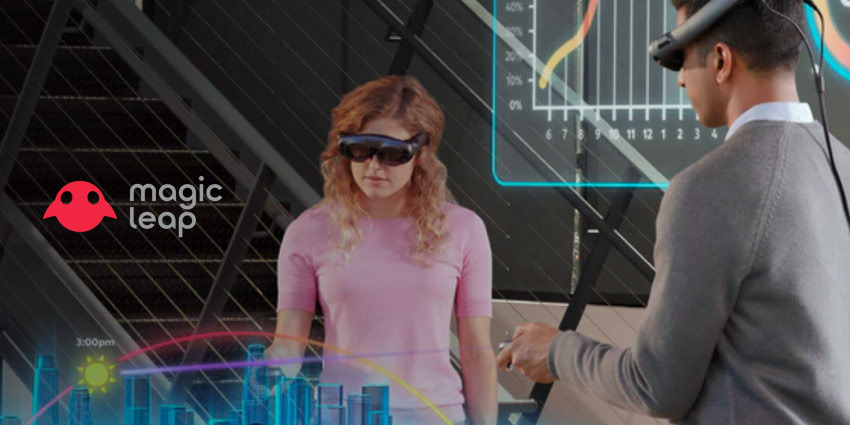We’ve reported a few stories about Magic Leap so far, the innovative American startup which has been promising a new future for extended reality. The company earned it’s position in the marketplace with a head-mounted virtual display known as Magic Leap One, which superimposed computer imagery over real-world objects. The result was a unique experience unlike anything else.
The only problem? Customers didn’t fall in love with Magic Leap straight away. It seemed that the incredible headset the company had spent so many years building just wasn’t suitable for the consumer market.
This year, the previous CEO of Magic Leap, Rony Abovtiz, announced that the company had raised an incredible $350 million in new funding. However, he also announced that he was stepping down as the leader of the business. Magic Leap followed up on this announcement by saying that its new CEO would be former Microsoft exec, Peggy Johnson.
Preparing for a New Future

It’s been a rough transition in the last few years for Magic Leap. When the product failed to earn the attention of the consumer market, the company began shifting to the enterprise instead. Even with the extra funding this year, the company had to lay off a huge number of its staff during the COVID-19 pandemic.
The valuation of the company dropped from $6.4 billion in 2019, to only $450 million in the course of just 6 months. The business also went through a massive restructuring process. Peggy Johnson took the role of CEO, and new experts joined the crew in the form of Jose Baltazar, Walter Delph, Ana Lang, and John Doherty. The new executive team could be just what Magic Leap needs.
Johnson was the Microsoft Executive Vice President of Business Development before working with Magic Leap. She was also the head of its venture capital fund, M12. According to Johnson, she actually reached out to Abovitz about taking over when he announced he would be stepping down.
According to Peggy, current-generation mixed reality could be comparable to the early smartphone and computing tech that many of us encountered many years ago.
Is There a Market for Magic Leap?
The mixed and augmented reality environment did experience a boom in the mid 00’s, but many AR companies have started to change their focus or shut down completely. More recently, Bose started to abandon its plans for creating audio-based mixed reality glasses. Google also acquired consumer AR startup, North, and ended plans for a new next-gen pair of North glasses.
As well as cutting hundreds of employees this year, Magic Leap has a few other issues to face too. The company is now in the middle of working on a new generation of its impressive initial product. On the one hand, the rise of the pandemic could be an interesting thing for Magic Leap, as it promises new opportunities in remote work. However, other opportunities are beginning to disappear too.
Magic Leap had to delay the launch of something called “The Last Light” this year when various film festivals shut down. The team does believe that virtual reality and extended reality experiences will fundamentally change the way people go about their lives. This doesn’t just apply to consumers and gamers, but business people who need to collaborate and communicate more effectively too.
What’s Next for Magic Leap?

According to Walter Delph, the Chief Business Officer of Magic Leap, the setbacks that the company is facing right now aren’t going to stop it from innovating. Virtual reality was initially a massive consumer-focused technology for a lot of companies. However, it now seems as though enterprise environments could become a more lucrative opportunity overall.
In the next phase of its development, Magic Leap will be concentrating on selling its services to companies. It sees its solutions as crucial for the future of staff connectivity. For instance, if businesses want to train staff remotely, review new designs from a distance, and develop new ideas, they can do so in these virtual environment.
According to Magic Leap, the technology they create won’t be virtual reality, or augmented reality – but a mixture of something different. Spatial computing will combine images projected with the physical reality of a location in a more “mixed reality” solution.







